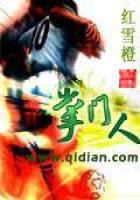What are those inductions and deductions, and how have you got at this hypothesis? You have observed in the first place, that the window is open; but by a train of reasoning involving many inductions and deductions, you have probably arrived long before at the general law--and a very good one it is--that windows do not open of themselves; and you therefore conclude that something has opened the window. A second general law that you have arrived at in the same way is, that tea-pots and spoons do not go out of a window spontaneously, and you are satisfied that, as they are not now where you left them, they have been removed. In the third place, you look at the marks on the windowsill, and the shoe-marks outside, and you say that in all previous experience the former kind of mark has never been produced by anything else but the hand of a human being; and the same experience shows that no other animal but man at present wears shoes with hob-nails in them such as would produce the marks in the gravel. I do not know, even if we could discover any of those "missing links" that are talked about, that they would help us to any other conclusion! At any rate the law which states our present experience is strong enough for my present purpose. You next reach the conclusion that, as these kind [89] of marks have not been left by any other animal than man, or are liable to be formed in any other way than a man's hand and shoe, the marks in question have been formed by a man in that way. You have, further, a general law, founded on observation and experience, and that, too, is, I am sorry to say, a very universal and unimpeachable one,--that some men are thieves; and you assume at once from all these premisses--and that is what constitutes your hypothesis--that the man who made the marks outside and on the window-sill, opened the window, got into the room, and stole your tea-pot and spoons. You have now arrived at a vera causa;--you have assumed a cause which, it is plain, is competent to produce all the phenomena you have observed. You can explain all these phenomena only by the hypothesis of a thief. But that is a hypothetical conclusion, of the justice of which you have no absolute proof at all; it is only rendered highly probable by a series of inductive and deductive reasonings.
I suppose your first action, assuming that you are a man of ordinary common sense, and that you have established this hypothesis to your own satisfaction, will very likely be to go off for the police, and set them on the track of the burglar, with the view to the recovery of your property. But just as you are starting with this object, some person comes in, and on learning what you are about, says, "My good friend, you are going on a great deal too fast. How do you know that the man who really made the marks took the spoons? It might have been a monkey that took them, and the man may have merely looked in afterwards." You would probably reply, "Well, that is all very well, but you see it is contrary to all experience of the way tea-pots and spoons are abstracted; so that, at any rate, your hypothesis is less probable than mine." While you are talking the thing over in this way, another friend arrives, one of the good kind of people that I was talking of a little while ago. And he might say, "Oh, my dear sir, you are certainly going on a great deal too fast. You are most presumptuous. You admit that all these occurrences took place when you were fast asleep, at a time when you could not possibly have known anything about what was taking place. How do you know that the laws of Nature are not suspended during the night? It may be that there has been some kind of supernatural interference in this case." In point of fact, he declares that your hypothesis is one of which you cannot at all demonstrate the truth, and that you are by no means sure that the laws of Nature are the same when you are asleep as when you are awake.
Well, now, you cannot at the moment answer that kind of reasoning.















